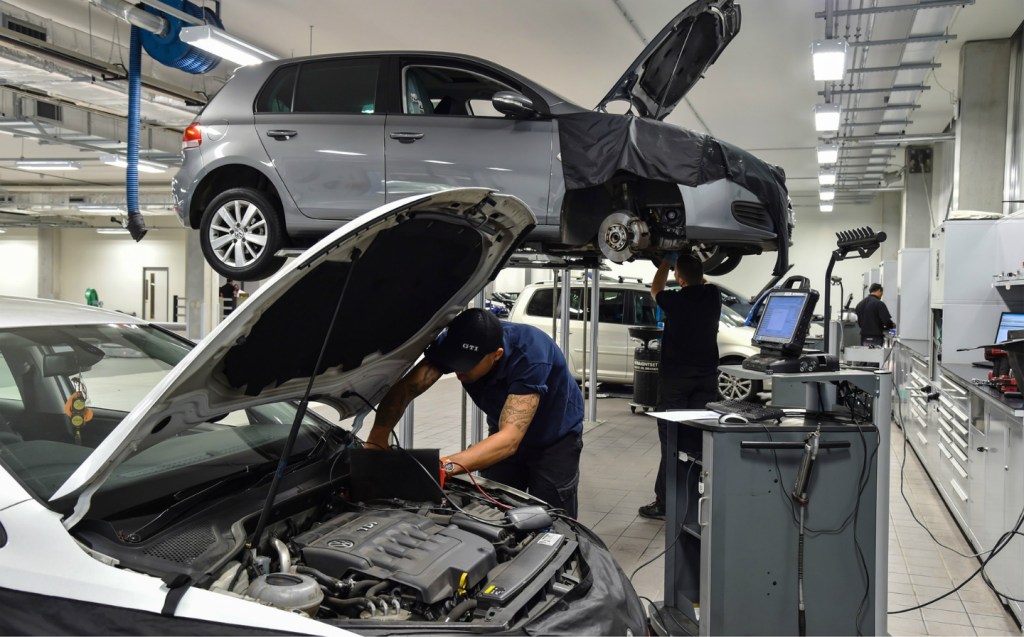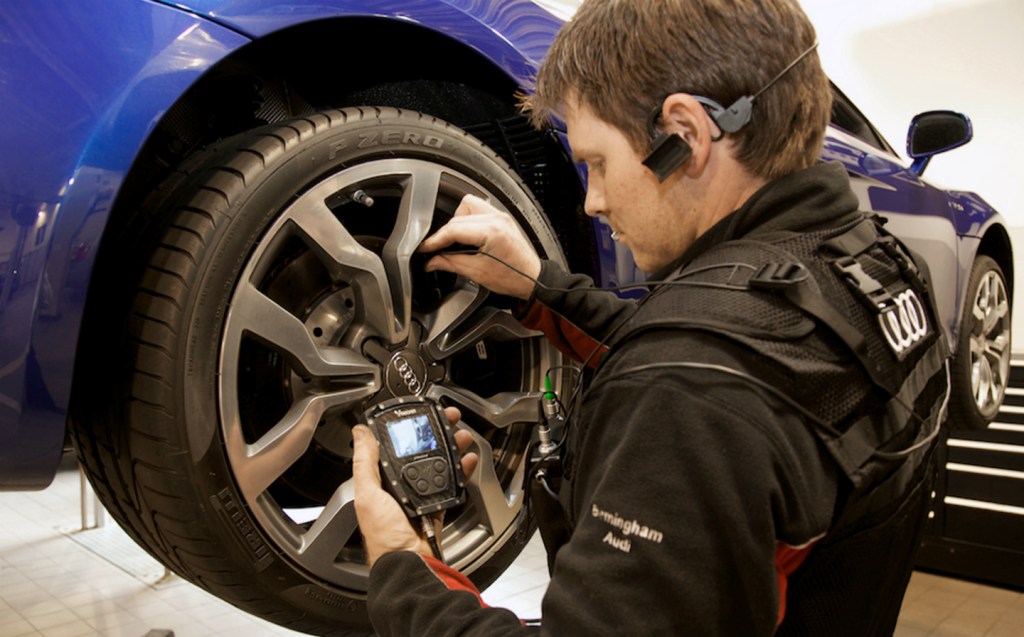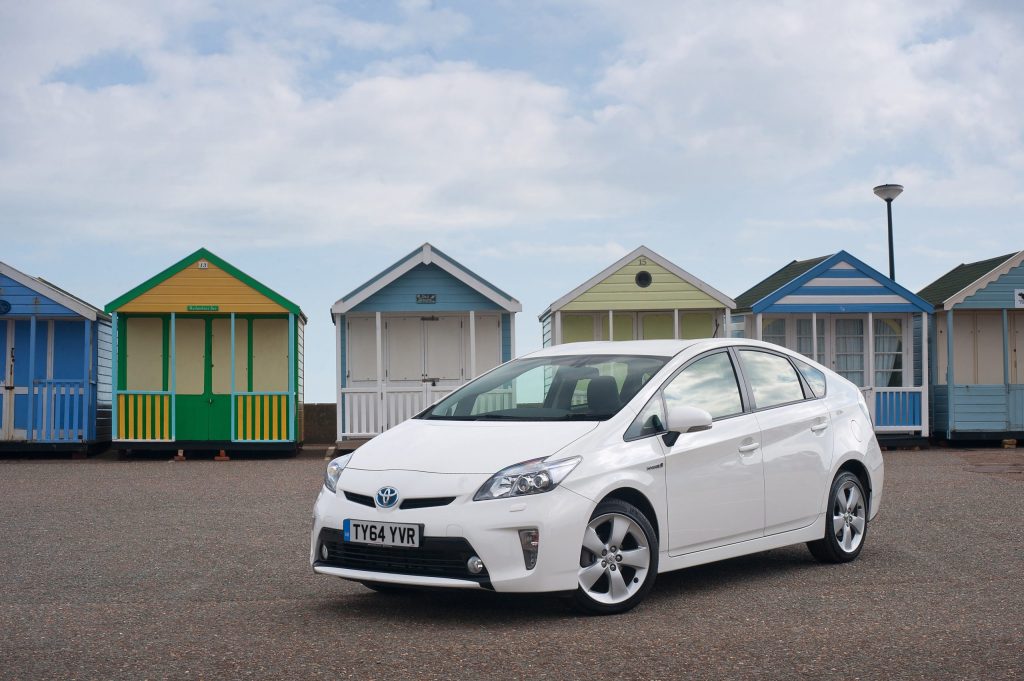‘Breaking point’ for repair bills before drivers replace their car revealed
Does it make more sense to spend £14k on a replacement?
It’s the moment all drivers dread: an an unexpected repair bill from their garage that causes palms to become clammy and hearts to judder. Now a survey has put a figure on the tipping point at which motorists decide enough is enough and decide to ditch their unreliable motor.
Online used car marketplace CarGurus asked 1,000 people, all of whom own cars without a warranty (in other words, older vehicles), what the limit of unexpected repairs bills would be before they make the call to replace their car. The “breaking point” that triggers motorists to switch into a new vehicle, the company found, is £772.
The majority of drivers survey were only willing to tolerate fewer than three faults with their cars during routine maintenance, and would spend a maximum of £772 in the course of 12 months on unexpected repairs. Anything above that would be enough to make Brits consider buying a replacement car, rather than simply effecting the repairs on their current vehicle.
Drivers willing to spend much more on a replacement
Bizarrely, respondents said that while they were unwilling to spend more than £772 on unexpected repairs, if they decided to replace their car entirely then they would spend an average of £14,310 on a replacement car — £13,548 (1,752 per cent) more than the costs of fixing the old motor. The attraction of a younger approved used vehicle, which may come with an extended warranty, could be considerable for drivers stung by large repair bills for an older car.
The respondents also reckoned that there was a limit to how long they’d wait for an unplanned repair on their existing car, citing ten days in the garage as the ceiling that would have them considering buying something else instead.

Contrarily, this data comes at a time when the average age of the cars on UK roads is up to nine years old, an increase of a year on the same figure in 2019.
It shows that drivers in the country are tightening their belts in a financially conscious and challenging period, preferring to keep hold of an older car and maintain it, rather than discarding it and splashing out on a new vehicle, or at least a younger second-hand machine.
Unexpected trips to the garage
That’s reflected in other aspects of the CarGurus survey, which shows that reliability (57 per cent) and costs (45 per cent) are the main reasons people replace their cars these days.
Other factors include safety concerns (20 per cent), being able to afford a better car (also 20 per cent) and their present vehicle’s size being unsuitable (12 per cent).
The survey data showed that half of UK car owners have made unexpected trips to the garage in the past 12 months.

Outside scheduled servicing and MOTs, drivers spend an average of £269 per year on unplanned repairs, CarGurus said. That’s on top of an average £427 of expenditure on routine maintenance.
Worryingly, two-in-five respondents said they are putting off repairs because of the cost. That results in cars being driven with issues such as dashboard warning lights, smoking or blowing exhausts, rattling engines, rust and even worn tyres.
Nearly three-quarters (72 per cent) said they were stressed by the prospect of unplanned car repairs, while only one in ten will attempt to fix their car themselves — the other 90 per cent rely entirely on a garage to do the remedial work on their vehicle for them.
The perceived most reliable cars
The study suggested that UK drivers think the top ten most reliable car brands are (in order) Toyota, Volkswagen, Ford, Honda, Volvo, BMW, Audi, Mercedes, Nissan and Hyundai.
That compares with the 2024 What Car? Reliability Survey results, which found that top 10 most reliable car brands to be Lexus, Toyota, Mini, Suzuki, Mitsubishi, Honda, Hyundai, Kia, Volvo and Tesla respectively. The CarGuru findings suggest some German brands still have a reputation for reliability even if the facts don’t necessarily bear that out.

Chris Knapman, editorial director at CarGurus, said: “There is always the potential for the occasional unexpected car expense, yet as drivers are holding onto their cars for longer, our study shows that the tolerance of unforeseen issues is very low.
“For those who have reached breaking point, upgrading to a car with a long manufacturer-backed warranty can make a lot of sense, and is perfectly possible within the average budget of £14,320 that owners are willing to spend.”
Related articles
- If you found this article about the repair cost at which motorists baulk interesting, you might like to read about the most reliable cars list still being dominated by Japanese and Korean car makers
- Did you know Tesla was found to be the worst for reliability in an American driver survey?
- Interested in safety? The UK regulator has told carmakers to reduce the reliance on touchscreens or face lower ratings
Latest articles
- Seven great automotive events to visit this summer, from F1 to art and champagne
- Watch new Porsche 911 GT3 smash Nürburgring record for manual cars
- Skoda Elroq 2025 review: Czech carmaker can’t seem to miss with its electric family cars
- Five best electric cars to buy in 2025
- Should I buy a diesel car in 2025?
- F1 2025 calendar and race reports: The new Formula One season as it happens
- Zeekr 7X AWD 2025 review: A fast, spacious and high tech premium SUV — but someone call the chassis chief
- Denza Z9GT 2025 review: Flawed but sleek 1,062bhp shooting brake from BYD’s luxury arm
- Extended test: 2024 Renault Scenic E-Tech review














